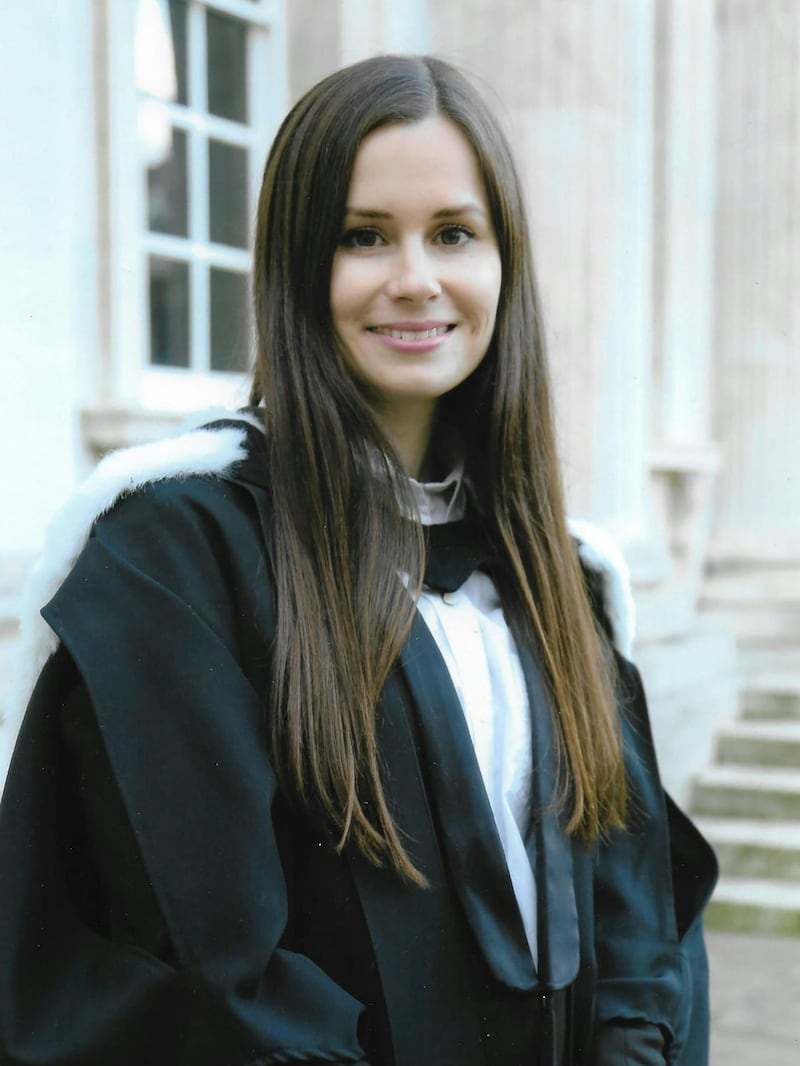Iranian authorities said Australian-British academic Kylie Moore-Gilbert and French-Iranian researcher Fariba Adelkhah will serve their full prison terms despite their hunger strike and what it describes as "propaganda" in the media.
Dr Moore-Gilbert has been in custody in Iran for 14 months. The spying charge against her was not made public by Iranian authorities until some time after she was sentenced to ten years in prison in September this year.
Ms Adelkhah’s arrest for alleged espionage was confirmed in July. She is a specialist in Shiite Islam and a research director at Sciences Po University, France. On Thursday, the university said that both women started a hunger strike on December 24.
Australia’s Foreign Minister Marise Payne called for Dr Moore-Gilbert to be treated “fairly, humanely and in accordance with international norms”.
Iranian foreign ministry spokesman Abbas Mousavi said his country's government "will not submit to political games and propaganda".
“Like any other individual with a sentence, [Dr Moore-Gilbert] will serve her time while enjoying all legal rights,” he said.
Iran’s government only confirmed Dr Moore-Gilbert’s arrest in September this year, but she has been detained since October 2018.
She was accused of “spying for another country”.
Mr Mousavi claimed Dr Moore-Gilbert was detained for “violating Iran’s national security” and her sentence had been issued in accordance with “all the related laws”.
He said Iranian authorities would not forget Australia's treatment of Negar Ghodskani, an Iranian woman arrested two years ago for violating US sanctions on Iran.
Ms Ghodskani gave birth in custody in Australia before being extradited to the United States, where she was sentenced under US law for sanction violations. She was released in September and returned to Iran.
British-Iranian national Nazanin Zaghari-Ratcliffe received a five-year prison term in 2016 for spying, while Dr Moore-Gilbert is facing twice that length of time in jail.
The pair briefly met last week in Iran's notorious Evin prison, Ms Zaghari-Ratcliffe's husband Richard said.
"Before the guards pulled them apart, Nazanin was able to tell Kylie that the world is watching her story and it will be OK," Mr Ratcliffe tweeted after a conversation with his wife.
The implication that the treatment of Dr Moore-Gilbert is in part a response to Ms Ghodskani’s case appears to be consistent with a retaliatory approach by Iranian authorities, a notion also supported by Iran’s recent release of a British-Australian national and her Australian partner seemingly in exchange for an Iranian citizen detained in Australia.
In early October, Pouyan Afshar, the lawyer representing Iranian scientist Reza Dehbashi Kivi, told The National he did "not doubt for a second" that his client's release was linked to the freeing of Jolie King and Mark Firkin by Iranian authorities.
Mr Kivi was doing research at the University of Queensland when he was detained 15 months ago by Australian authorities. His release and return to Iran came despite the US asking for him to be extradited to face charges of conspiring to export American-made electronic military devices to Iran.
Before their release, Ms King and her partner, Mr Firkin, had been held for three months for allegedly flying a drone near a military site in Tehran.
Ms Paynetold Australian broadcaster SBS that the ongoing detention of Dr Moore-Gilbert is "a matter of deep concern to the government".
“I have communicated with my Iranian counterpart, Foreign Minister [Javad] Zarif, many times about this case, including through face-to-face meetings,” she said.
Dr Moore-Gilbert is an Islamic Studies academic at the University of Melbourne. She published works on authoritarianism in the Muslim world and on the Arab uprisings in 2011.
Her articles include a 2015 review of the book The Arab Gulf States and Reform in the Middle East: Between Iran and the Arab Spring.
Much of her work is about Bahrain. She completed a Bachelor of Arts with first class honours in Middle Eastern Studies and a masters at Cambridge in 2013, and her PhD at the University of Melbourne. She has since worked at Monash University and the University of Melbourne.







